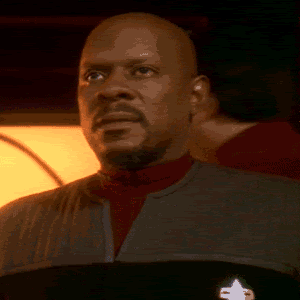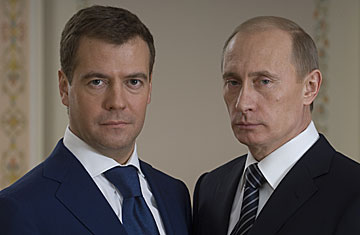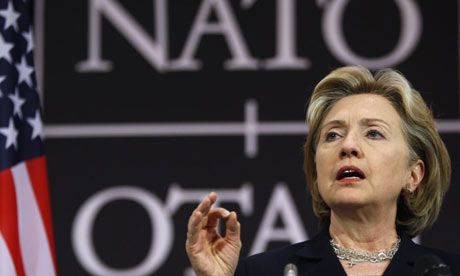Gates, NATO Defense Ministers Discuss New Strategic Concept
By John D. Banusiewicz
American Forces Press Service
BRUSSELS, Belgium, , Oct. 13, 2010 – Defense Secretary Robert M. Gates and his fellow NATO defense ministers are here to discuss myriad issues in advance of next month’s summit meeting of the alliance’s heads of state in Lisbon, Portugal.
While en route here from Hanoi, Vietnam, where he attended an expanded defense ministers meeting with the Association of Southeast Asian Nations, Gates told reporters traveling with him that tomorrow will be a busy day for NATO’s North Atlantic Council, but that the alliance’s mission in Afghanistan won’t be part of the agenda.
“Obviously, Afghanistan will figure prominently in Lisbon, but not tomorrow,” he said. “The work that we have cut out for us in Brussels tomorrow really is about trying to move forward and reach final agreement on a lot of the other aspects of the summit that are important in terms of the future of the alliance.”
Reaching agreement on NATO’s new strategic concept -- with assured security and dynamic engagement at its center -- will be at the top of the list, the secretary said. Also, he added, the council will try to agree on committing to various “critical capabilities” -- among them missile defense, capabilities to counter improvised explosive devices, cyber defense, and aircraft command and control systems.
“There are about 10 of these capabilities that we believe we need to commit to as guidance for the defense planning process,” Gates said. “They wouldn’t all be locked in stone, but they certainly should be things that the alliance should focus on.”
There’s a proposal to slim down the alliance’s command structure to realize “significant efficiencies,” Gates said. NATO has 14 agencies, he explained, and a proposal is on the table to trim that number to three.
“With all these reform efforts and efforts to bring efficiencies, our position, of course, will be -- just like we’re doing in Washington –- that any savings realized as a result of these efficiencies be plowed back into these critical capabilities that I talked about,” Gates said.
Amid reports that some allies are planning defense cuts, Gates said he knows they must deal with the issue based on their own internal dynamics, but he’s worried that any such cuts would cause the alliance to look toward the United States to cover any gaps created.
“At a time when we’re facing stringencies of our own, that’s a concern for me,” he said.
On missile defense, Gates said he believes broad support exists for the phased, adaptive approach to missile defense in Europe that calls for increasingly capable sea- and land-based missile interceptors and a range of sensors to defend against the ballistic missile threat from Iran.
“The linkage with national missile defense, so that both territories and populations are covered, is really more a matter of software –- of connecting the command and control of the different national capabilities,” he said. That would require only a modest financial outlay beyond what already has been approved –- perhaps 85 million to 150 million euros over 10 years, he added.
A defense ministers’ session of the North Atlantic Council will take place tomorrow morning, and they’ll be joined in the afternoon by the alliance’s foreign ministers for a joint session of the council. The foreign ministers will hold a separate meeting among themselves after that.
|




 Reply With Quote
Reply With Quote







 Russia, NATO officials to discuss military cooperation
Russia, NATO officials to discuss military cooperation



Bookmarks